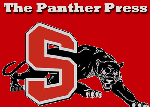
The Absence of Knowledge
Written by Hal Gray, Former Student on Monday, February 8, 2016
Snohomish High has many, many clubs. From basics like DECA and FBLA, to a place for budding young conservatives to meet, it seems as if there’s no shortage of things for the youth of Snohomish to do. The Snohomish club roster, however, is short one especially unique and challenging club that, while old, has never seen the popularity or acclaim that sports and other clubs have
Knowledge Bowl, named presumably named for the bowls they make you wear when you play, began as an idea in the brain of a Colorado student in 1976. From there, it spread across the state, and expanded into Nevada, though it did not reach Washington State until 1981. Three years later, nine districts were participating, and the first statewide competition was held. Since then, it has been a yearly tradition in a number of Washington schools, yet seemingly few people know about it.
The basis of the game is simple. Take Jeopardy, add three-person teams, a written round, subtract Alex Trebek, and players choice of questions from a board, and you’re off and running. Written rounds come first, usually consisting of about 50 questions ranging from Chemistry to 18th Century Latin-American poetry. All subjects are fair game- paying attention in class is not completely sufficent. You may come across question concerning some of Stephen King’s more disturbing tales, or cow stomachs, or the food network. You may not think taking a voluntary test would ever be any fun, but it’s surprisingly exciting to work with teammates and rack your brains, trying to remember where you heard about that cask of amontillado. After the written round is done and graded, teams are sent to different rooms depending on their score. There, you’re pitted against two other teams. While only three people are allowed at the table at a time, competitors are allowed to switch halfway through the oral round with a benched teammate if the question is leaning more into the subject of applied physics and the current competitor's specialties are Super Bowl winners and mythical creatures.
An effective team has a cast comprising of experts in all fields. A budding poet, a guy who does complex math equations “for the rush," and someone who can recite the entire periodic table, including atomic weight, are all helpful. Competitors also have be fast. A long aluminum bar sits in front of them, and the first hand to touch it is the first to be allowed to answer. One point is awarded for every right answer. Fortunately, there’s no penalty for answering incorrectly.
There are three oral rounds, consisting of 50 questions each. After several hours and 200 questions, both oral and written, teammates shuffle, brain-dead, to buses and minivans and head home. A week later, results are sent to advisors. After several qualifying events, the players with the highest scores invited to the regional competition, and from there to the state competition.
Knowledge bowl is for those individuals who like knowledge and/or bowls, take pleasure in beating their head against a desk because they knew that one, or enjoy working with friends to be the best there ever was at answering mostly obscure and random questions.








